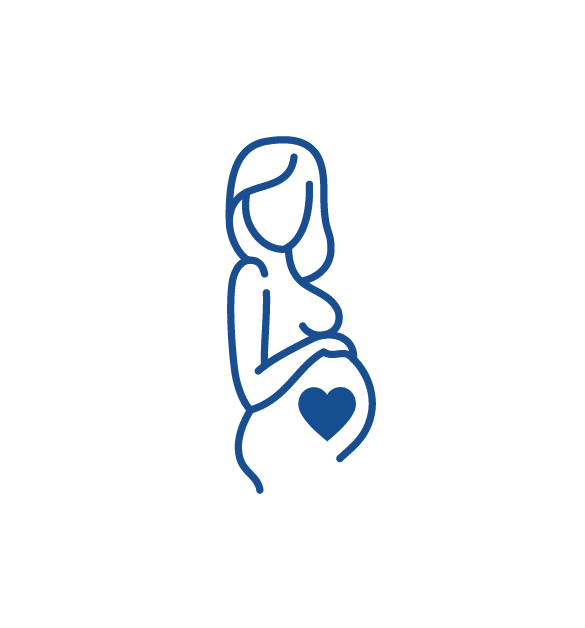ThinPrep Test
 Fertility & Women Wellness Clinic
Fertility & Women Wellness Clinic

Cervical cancer, the second leading cause of death in women, closely trailing breast cancer, is a stark reality claiming the lives of up to seven Thai women daily. This formidable adversary is primarily triggered by the Human Papillomavirus (HPV), a virus capable of inducing chronic inflammation in cervical cells, ultimately culminating in malignancy. A troubling aspect is that HPV often spreads through sexual contact, and many infections go unnoticed. By the time they are detected, it may be too late for effective intervention.
What are criteria and sign to consider for Pelvic examination and cervical cancer screening?
- Individuals with a family history of cancer.
- Women who have not undergone regular screenings for an extended period.
- Those who have been on female hormones or birth control pills for a considerable time.
- Women who should start screening approximately three years after their first sexual encounter.
- Women who never have sexual activity should begin screenings at age 35 and above.
- Early menstruation (before age 12) or late menopause (after age 55) may necessitate screenings.
- Menopausal women.
- All sexually active women.
- Individuals experiencing pain during sexual intercourse.
- Women with abnormal vaginal discharge or irregular bleeding.
- Those who regularly suffer from lower abdominal pain, constipation, bloating, and abdominal distention.
Recommended Cervical Cancer Screening Programs
- Cervical cancer screening (ThinPrep) combined with Transvaginal ultrasound (TVS) to detect uterine and ovarian abnormalities.
- Cervical cancer screening (ThinPrep) combined with HPV Vaccine
3 types of HPV vaccines that can prevent HPV infection:
- Cervarix vaccine (2 strains) provides protection against HPV strains 16 and 18.
- Gardasil vaccine (4 strains) offers protection against HPV strains 6, 11, 16, and 18, including protection against genital warts caused by strains 6 and 11.
- Gardasil vaccine (9 strains) provides protection against HPV strains 6, 11, 16, 18, 31, 33, 45, 52, and 58, and also protection against genital warts caused by strains 6 and 11.
Advantages of HPV Vaccination
- The vaccine can be injected at the same time with cervical cancer screening.
- Highly effective in preventing HPV virus infection.
- Few side effects. Some individuals may experience headaches, nausea, and vomiting, but these symptoms typically disappear by the time.
- Offers protection against HPV for both females and males.
Instructions for HPV Vaccination
HPV vaccination should ideally consist of a total of three doses. *However, for girls, if the initial dose is injected before their age of 15, the vaccine can be injected only two doses, spaced 6-12 months apart.
- 1st dose: Administered on the preferred day.
- 2nd dose: Administered 1-2 months after the first dose.
- 3rd dose: Administered 6 months following the second dose.
Changing Behaviors and regularly get screened for cervical cancer, for Risk Reduction
Regular screening for cervical cancer is vital to minimize risk factors associated with the disease. This screening method involves the use of ThinPrep and HPV DNA Cobas Test, specifically designed to detect HPV types 16 and 18.
When combined together, these two methods significantly enhance the accuracy of cervical cancer detection compared to merely using ThinPrep testing. The HPV DNA test identifies the presence of the HPV virus, which is the main cause of cervical cancer occurrence approximately 90%. Whereas the ThinPrep test focuses on identifying cell abnormalities that might develop into cancerous cell in the future. Consequently, the combined use of these tests ensures early-stage cancer detection with greater precision and efficiency.
When should one begin cervical cancer screening, and how often should it be done?
In general, women are recommended to receive cervical cancer screening at the age of 30, or as early as age 25, depending on individual circumstances. Subsequently, screening should occur on an annual basis. Nevertheless, the screening frequency can be adjusted in accordance with personal condition and the gynecologist's assessment, particularly in cases where the HPV Virus is not detected.
Therefore, it is crucial to consult with a doctor and having an appropriate screening schedule. Never underestimate the importance of the screening, to prevent an occurrence of disease.
For more information, please contact
Tel +6628269971
Line: @womenandfertility or https://lin.ee/kna2NJA

